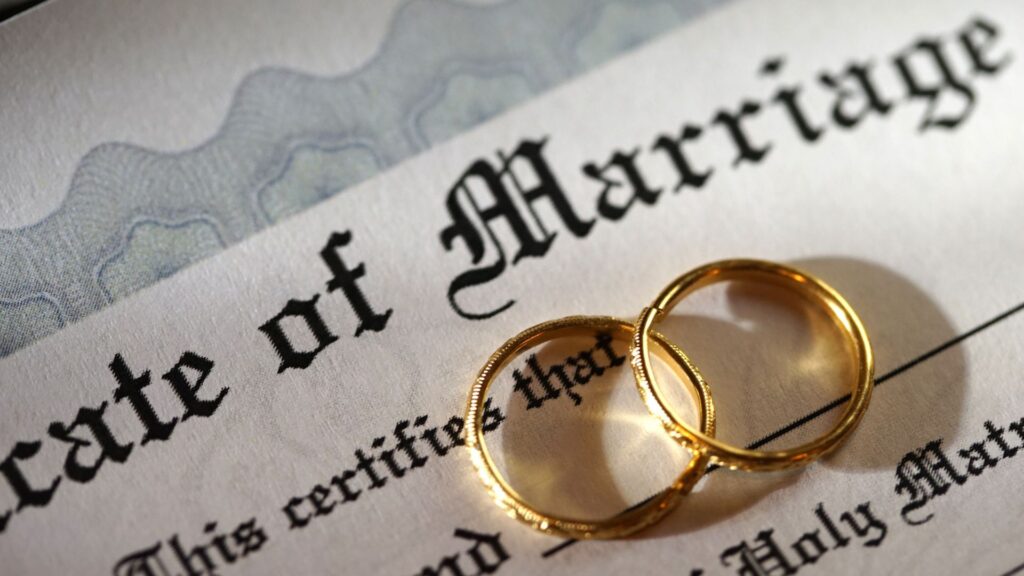Marriage is a choice that has lasted through time, but the reasons for it are different for each couple. In my 20 years as a therapist, I have seen many reasons why people decide to get married. The reasons vary from emotional connections to practical collaborations, but they often have similar underlying elements. Let’s discuss why marriage is still an important part of human relationships, with examples from my experience working with couples and information from the changing world of relationships.
Marriage isn’t just a vow—it’s a daily choice to build a life where both partners feel safe, seen, and strong together. — Dr. Peggy Bolcoa
1. Seeking a Secure Emotional Bond
The main purpose of marriage is to have a secure and long-lasting bond with your partner. In my work, I use Emotionally Focused Therapy (EFT), which has been shown to strengthen the bond between couples by addressing attachment needs in 85% of cases. People get married to establish a safe place where they feel appreciated and understood.
- The Power of Attachment: Humans are wired for attachment. Marriage offers a promise of reliability—a partner who’s there through life’s highs and lows. I often hear clients say, “I want someone who gets me, no matter what.” That’s attachment at work.
- Real-Life Impact: One couple I worked with, married for seven years, hit a rough patch after a job loss. Through EFT, they rebuilt trust and realized marriage wasn’t just about love but about being each other’s anchor. “Peggy, you helped us remember why we chose this,” they told me.
Getting married isn’t just about signing a piece of paper; it’s a promise to always be there for each other emotionally. Research indicates that married people have less stress compared to single people, and their cortisol levels decrease greatly when they are in a stable relationship.
2. Building a Shared Vision for the Future
Getting married often comes from wanting to have the same goals in life. Over my 23 years of counseling, I’ve witnessed couples getting married to plan their future together—whether it’s having children, purchasing a house, or exploring the world.
- Dreams in Sync: In 2021, a study by Pew Research found that 59% of married couples said that having common goals was a major reason for getting married. I notice this during counseling when couples become excited when talking about their plans for the next five years.
- My Experience: I gave advice to a couple who were thinking about getting married. One partner was concerned that it might restrict their freedom, but with the help of therapy, they created a vision that combined independence with being in a partnership.
3. The Pull of Love and Intimacy
Love is a universal driver of marriage, but it goes beyond fleeting butterflies. In my work, I’ve seen that couples marry to deepen intimacy—emotional, physical, and even spiritual. It’s more than just passion; a 2018 study in Journal of Marriage and Family found that those who marry for companionship report higher satisfaction over time than those chasing sparks alone. I teach couples to nurture this connection through small, consistent acts—like a daily check-in—which keeps love alive.
One woman I counseled feared marriage would dull her relationship’s excitement, but after exploring EFT, she and her partner learned to prioritize their bond. “Peggy, you showed us love is a choice we make every day,” she told me. Marriage makes love stronger by allowing both people to be open and committed to each other through the good and bad times in life.
4. Social and Cultural Expectations
Let’s be real: society still encourages people to get married. In my job, I work with people who are struggling with outside influences like family traditions, cultural expectations, or the unrealistic images they see on social media.
- The Numbers: A Pew Research Center poll noted that 58% of adults believe marriage is an important institution, though 39% feel it’s outdated. This split shows why some marry to honor tradition while others resist.
- Navigating Pressure: I worked with a couple whose families pushed for a quick wedding. They felt trapped until we explored their own reasons for marrying. “You helped us see it was our choice, not theirs,” they told me.
5. Practical Benefits and Stability
Marriage involves practical considerations, not just romance. Many couples are attracted by the concrete benefits, such as financial security and legal protections. In my Costa Mesa office, I’ve worked with partners who see marriage as a stable foundation in an unpredictable world. According to a 2019 study, married couples save 15% more annually than singles due to tax benefits, shared health plans, and inheritance rights.
I once advised a couple who chose to get married after a health scare to make sure they could take care of each other in the future. “They said it was not just love, but also the certainty that we would support each other.” Although it may not seem romantic, the practical aspect of marriage offers a strong safety net that is difficult to overlook, which is a significant motivator for many people to get married.
6. The Role of Online Dating in Modern Marriage
Online dating has reshaped how people find partners, and I’ve seen its impact in my work. Platforms like SofiaDate, SakuraDate, or LatiDate report millions of monthly users, with most users seeking long-term relationships leading to marriage.
- Why It Works: Online dating widens the pool and lets people connect across distances and cultures. I’ve counseled couples who met online and married after building trust through virtual chats.
- My Advice: “Be clear about wanting marriage,” I tell clients. Profiles that state long-term goals attract like-minded partners. One client met her spouse on SofiaDate after filtering for “marriage-minded” matches. “Peggy, you were right—honesty online paid off,” she said.

7. Personal Growth Through Partnership
Getting married can greatly help in personal development. I have seen how it can be difficult for couples to confront their imperfections, improve their communication, and grow together. Married people tend to have higher self-esteem and life satisfaction over time due to the resilience that comes from their partnership. I used to work with a husband who realized in marriage that he wasn’t as patient as he thought. Therapy helped him improve his listening skills and strengthen their relationship.
8. Creating a Family Legacy
For many, marriage is about building a family—whether that means kids, pets, or a tight-knit community. In my sessions, couples often cite legacy as a motivator.
- Stats to Know: 65% of married couples plan to have children, compared to 41% of cohabiting couples. Marriage signals a devotion to that vision.
- A Couple’s Journey: I worked with partners who married to create a stable home for their future kids. “We wanted a foundation our children could rely on,” they said.
9. The Spiritual Dimension
Marriage holds a sacred significance for some people. I don’t push my Christian beliefs in sessions, but I’ve seen clients of various faiths get married to fulfill their spiritual beliefs. A Pew survey revealed that 47% of Americans view marriage as a religious or spiritual commitment. I only incorporate spirituality into therapy when clients ask for it, but it can be very impactful when they do.
10. The Joy of Devotion
Finally, people marry for the sheer joy of committing fully. In my practice, I’ve seen couples light up at the idea of promising forever, flaws and all.
- Why It Matters: Some studies found that devotion boosts life satisfaction by 20% in married couples compared to singles.
- A Moment to Share: One bride-to-be told me, “Saying ‘I do’ feels like choosing joy every day.” We worked on pre-marital skills to make sure that joy lasted.
Marriage is a bold, beautiful leap—a choice to embrace both the messy and the magical.
My Conclusions as a Psychotherapist
After 23 years guiding couples, I believe marriage endures because it meets our deepest needs: connection, purpose, and growth. It’s not a cure-all—every relationship faces storms—but it’s a framework for weathering them together. “Marriage works when both partners choose to show up, even on tough days,” I often say.
As online dating grows, so does the path to marriage, but the core remains unchanged: it’s about building a bond that feels like home. My work with EFT shows that 70% of couples can rebuild even fractured connections with the right tools. So why do people get married? Because, at its best, it’s a promise to create something stronger than the sum of its parts.
Read Also:

